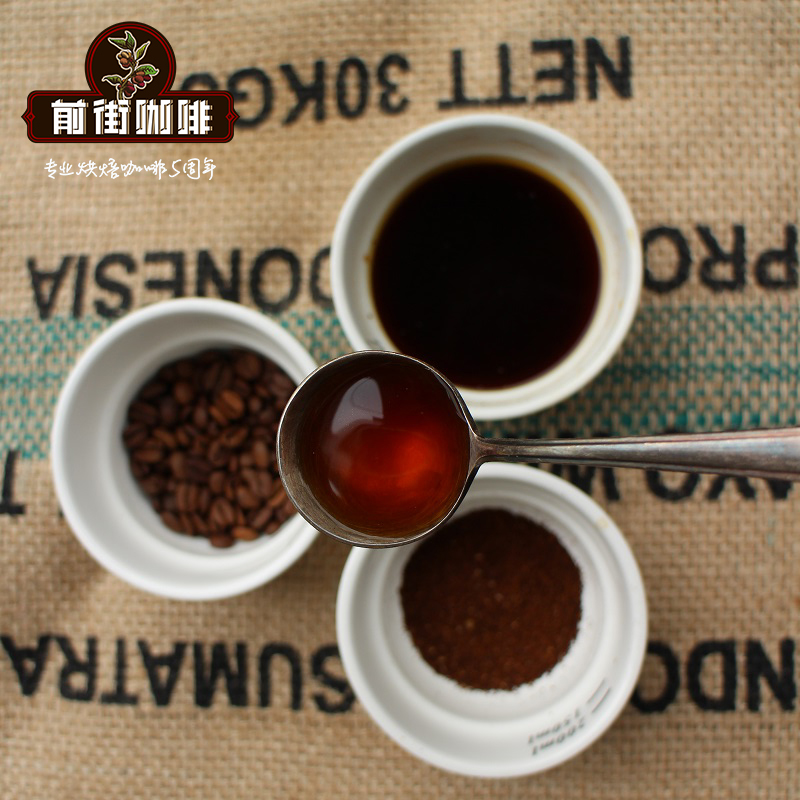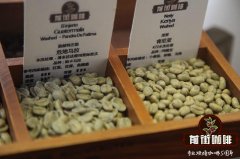Coffee knowledge | effect of altitude on coffee | the higher the altitude, the better the coffee?

Like wine, beer and tea, the way coffee beans grow can greatly affect the taste of the cup you end up drinking. There are many factors that affect the quality of coffee beans, but none is more important than the growth of coffee beans.
To understand why altitude has such a great effect on the flavor of coffee beans, we must study plant biology in depth. In general, the higher the altitude, the more difficult it is for plants to grow. Although this may seem like a bad thing on the surface, it is actually good for living plants. The high-altitude coffee beans they produce are denser, harder and filled with the sugar and flavor that coffee lovers pursue.
How does altitude affect the flavor of coffee Arabica coffee higher altitude has an effect on coffee plants
In bad weather, beans ripen more slowly, giving sugar more time to develop. Sloping surfaces in the mountains promote runoff, which means that plants get less water and coffee cherries become denser.
Because most of the plants we eat grow at sea level, you may want to know the altitude of coffee. In general, coffee grown above 1200m above sea level is considered "high altitude" coffee. However, coffee grows at different elevations around the world, and each altitude affects the flavor of coffee beans in different ways.
Coffee grown at 750 meters
Coffee grown below 750 meters has a complex, mild and insipid taste. At these elevations, coffee plants are under little pressure and are rich in water, which means that coffee cherries become good and fat, thus diluting their taste. The only exception at this altitude is the famous Hawaiian Kona Coffee, which can thrive at an altitude of 600 meters.
Coffee grown at 900 meters
At 900 meters, the coffee began to show a sweet and slippery taste. At this altitude, the climate is slightly worse, which is beginning to be proved by the taste of harvested beans.
Coffee grown at 1200 meters
At a height of 1200 meters, we entered the best coffee field in the world. This is the best altitude where Arabica beans grow in the world. Another factor affecting the quality of this height of coffee beans, especially Arabica, is that they usually grow in nutrient-rich soil. The flavor characteristics of coffee beans grown at this height are different. You can smell citrus, nuts, vanilla and chocolate.
High-altitude coffee grown at 1500 meters
Coffee growing at about 1500 meters is called extremely high altitude coffee. The flavor given by these beans is fruity, spicy, floral and even reminiscent of wine.
Now that you know that altitude may affect the taste of coffee beans, will know which coffee beans to buy when you go to your local coffee shop.
Important Notice :
前街咖啡 FrontStreet Coffee has moved to new addredd:
FrontStreet Coffee Address: 315,Donghua East Road,GuangZhou
Tel:020 38364473
- Prev

World Coffee producing area | detailed description of each major coffee producing area | Top 10 coffee producing countries in the world
Have you ever wondered where the coffee you had this morning came from? The main coffee growing areas in the world are sandwiched between the Tropic of Cancer and the Tropic of Cancer. The cultivation of coffee has expanded from its birthplace Africa to the east and west, forming the so-called bean belt. Although Brazil is dominant in quantity (nearly 3 million metric tons), coffee-growing areas cover subtropics and equator around the world.
- Next

Espresso | Origin and History of lattes | when was the first Starbucks latte born?
Latte art latte whether you call it a latte, French coffee or espresso, a latte is a drink that has stood the test of time. It has become one of the classic drinks in modern coffee shops, but how did it get there? The history of the latte is a long and interesting story, and its level is the most traditional
Related
- Beginners will see the "Coffee pull flower" guide!
- What is the difference between ice blog purified milk and ordinary milk coffee?
- Why is the Philippines the largest producer of crops in Liberia?
- For coffee extraction, should the fine powder be retained?
- How does extracted espresso fill pressed powder? How much strength does it take to press the powder?
- How to make jasmine cold extract coffee? Is the jasmine + latte good?
- Will this little toy really make the coffee taste better? How does Lily Drip affect coffee extraction?
- Will the action of slapping the filter cup also affect coffee extraction?
- What's the difference between powder-to-water ratio and powder-to-liquid ratio?
- What is the Ethiopian local species? What does it have to do with Heirloom native species?

